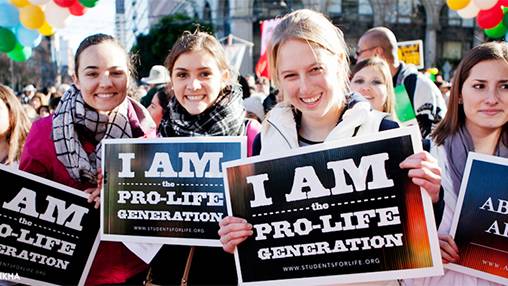The Pro-Life Temptation

Few issues divide our movement—whether we call it identitarianism, race-realism, or the “alt Right”—like abortion. To some, the practice is akin to murder, and its acceptance shows the degeneracy of the Left. To others, abortion—and contraception more generally—are eugenic practices, which are about the only things keeping our societies from falling into complete idiocracy.
I understand the pro-life temptation. The kinds of people who support abortion access most fervently are those who stand for the things we oppose: selfishness, atomization, the “liberation” of women, and leftist identity politics. In popular culture, legalized abortion is tied to “reproductive freedom,” which has liberated women from the horrible fate of being wives and mothers and allowed them to pursue more meaningful lives as cubicle drones.
Conversely, it is tempting to believe that abolishing legalized abortion would lead to a return to more traditional values, a higher birthrate, and healthier relations between the sexes. Many European leaders that we admire are moving their countries in a pro-life direction, perhaps because they have bought into this narrative.
Unfortunately, as our movement gains influence, it is important that we not fall prey to the pro-life temptation.
First off, the alt Right appreciates what is superior in man, in the Nietzschean sense. Most members of the alt Right applaud countries like Japan and South Korea for having low out-of-wedlock birth rates and not taking in Muslim or African refugees. We don’t simply say “who cares what they do, they’re not my tribe.” Rather, we recognize that such people have built impressive civilizations, and we believe that it is in the interest of humanity that these nations continue to exist, and not adopt the suicidal policies of the West.
Second, we on the alt Right have an appreciation of tribalism and identity. We realize that people are not just autonomous individuals. Life gains its meaning through connections to other members of our families, tribes, and nations.
Being pro-life flies in the face both of these principles.
The Pro-Life Movement is Dysgenic
First of all, the pro-life position is clearly dysgenic. A 2011 study showed that in 2008, while 16 percent of women aged 15-44 lived below the poverty line, among women who had abortions, the number was 42 percent. Hispanic and African-American women made up a combined 31 percent of this age group, but almost 55 percent of those who chose to terminate a pregnancy. The reasons behind these patterns aren’t hard to figure out. In a world with reliable birth control, it is quite easy to avoid an unwanted pregnancy; the only ones who can’t are the least intelligent and responsible members of society: women who are disproportionately Black, Hispanic, and poor.
A natural experiment in Colorado shows what happens when a state makes contraception and abortion more freely available. Over the last decade, the state has moved to the Left, and in 2009 it began offering free or low-cost long-acting contraception to poorer women. The state provided intrauterine devices and implants that, unlike condoms or the pill, did not require that the user be responsible enough to plan ahead. Within a few years, the birth rate of low-income women plummeted. In states where Republican legislatures have enacted a pro-life agenda, the opposite has happened.
The idea that there are capable women out there who are aborting their babies as they delay marriage and climb the corporate ladder is a fantasy. When an intelligent, responsible woman does have an abortion, it is often because the baby has a disease or the pregnancy threatens her health, not because she or her boyfriend forget to use contraception. A study in Europe found that over 90 percent of mothers who were told that their babies were going to have Down’s syndrome did not continue the pregnancy. In 2011, it was estimated that there are now 30 percent fewer people with the disorder in the United States due to prenatal diagnosis. In the future, as such technologies improve, what the Left calls “reproductive freedom” will continue to be the justification for private-sector eugenics.
The Identitarian Case
Not only is the pro-life movement dysgenic, but its justifications rely on principles we generally reject. The alt Right is skeptical, to say the least, of concepts like “equality” and “human rights,” especially as bases for policy. The unborn fetus has no connection to anyone else in the community. If it is not even wanted by its own mother, criminalizing abortion means that the state must step in and say that the individual has rights as an individual, despite its lack of connection to any larger social group. This is no problem to those in the conservative movement, who decide right and wrong based on principles like “the right to life.” It is no coincidence that some of the most pro-life politicians are those most excited about adopting children from Africa and those in their movement are among the conservatives most likely to denounce the “racism” of their political opponents.
The mother-child bond is the strongest of human relationships, the one least subject to being altered by government policy or societal forces. While over the last decades, fathers have become more likely to walk out on their children and divorce rates have risen, there has been no similar rise in females abandoning their children. When the parent-child bond does not exist for a pregnant woman, society has no business stepping in. Those who want to do so, by banning abortion because it’s “racist” or adopting children from Africa, are the ultimate cuckservatives.
Read more: radixjournal.com




















